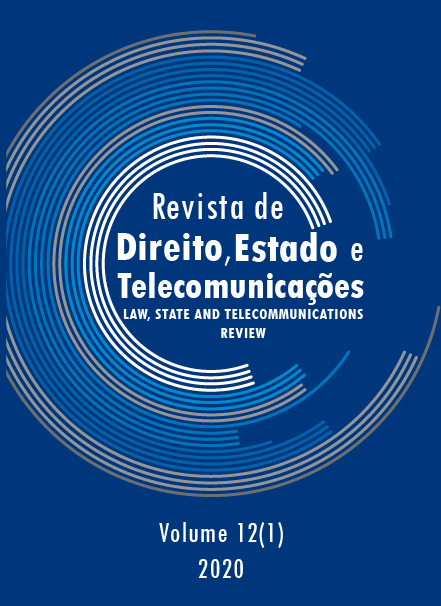VERTICAL INTEGRATION AND THE EVOLUTION OF AUDIOVISUAL SERVICES
ECONOMIC POLICY IMPLICATIONS FOR BRAZIL
DOI:
https://doi.org/10.26512/lstr.v12i1.28459Keywords:
Audiovisual industry. Brazil. Vertical integration. SeAC. Results-Based Regulation.Abstract
Purpose ”“ The purpose of this paper is describe the salience of economic theories and evidence regarding vertical integration in the multichannel audiovisual industry in Brazil. This is especially important at this time because Brazilian regulators and legislators are wrestling with the appropriate policy approach toward the industry in Brazil in the wake of the merger of AT&T and Time Warner.
Methodology/approach/design ”“ The paper develops with several approaches. First, to develop context, the paper provides a high-level introduction to the evolution of the audiovisual industry. Second, the paper turns to a more specific assessment of the economic and legal lessons learned from the discussion and debate regarding the AT&T-Time Warner merger in the United States. This discussion draws on economic and legal theory and evidence, both from the published literature as well as from court proceedings to advance understanding of the issues. These foundational sections, in turn, provide a platform for policy insights. In particular, the paper builds upon earlier research on “results-based regulation” to provide guidance for Brazilian regulatory and legislative measures being considered in Brazil.
Findings ”“ The paper concludes that a results-based approach should permit advances in the vertical integration of the audiovisual industry in Brazil. Such an approach necessarily would recognize that the modern evolution toward a more vertically integrated provisioning of audiovisual services is providing numerous consumer benefits while claims of consumer harm have been judged to be speculative. Application of Article 5 of SeAC to the AT&T-TW merger provides no additional consumer protections that are not already part of the merger and would, instead be distinctly anti-consumer.
Downloads
References
COASE, Ronald. The Nature of the Firm. Economica 4: 386-405, 1937.
KASERMAN, David L.; MAYON, John W. The Measurement of Vertical Economies and the Efficient Structure of the Electric Utility Industry. Journal of Industrial Economics 39(5): 483-502, September 1991.
KATZ, Raul. Changes in the Global and Brazilian Audiovisual Market: Competitive Dynamics, impact on Consumer Welfare, and Implications for Public Policy and Competition Model. Public Report: Telecom Advisory Services, 2019.
MAYO, John W. The Evolution of Regulation: Twentieth Century Lessons and Twenty-First Century Opportunities. Federal Communications Law Journal 65(2): 119-156, 2013.
SPENGLER, Joseph J. Vertical Integration and Antitrust Policy. Journal of Political Economy 58: 347-352, August 1950.
UNITED STATES v. AT&T, Inc. 310 F. Supp. 3d. (2018).
UNITED STATES v. AT&T, Inc., No. 18-5214 (D.C. Cir. 2019).
WILLIAMSON, Oliver. Economies as an Antitrust Defense: The Welfare Tradeoffs. American Economic Review 58: 18-36, March 1968.
WILLIAMSON, Oliver. Markets and Hierarchies: Analysis and Antitrust Implications. New York: Free Press, 1975.
Downloads
Published
How to Cite
Issue
Section
License
By submitting this paper to the Law, State and Telecommunications Review,
I hereby declare that I agree to the terms of the Creative Commons Attribution 4.0 International (CC BY 4.0).


